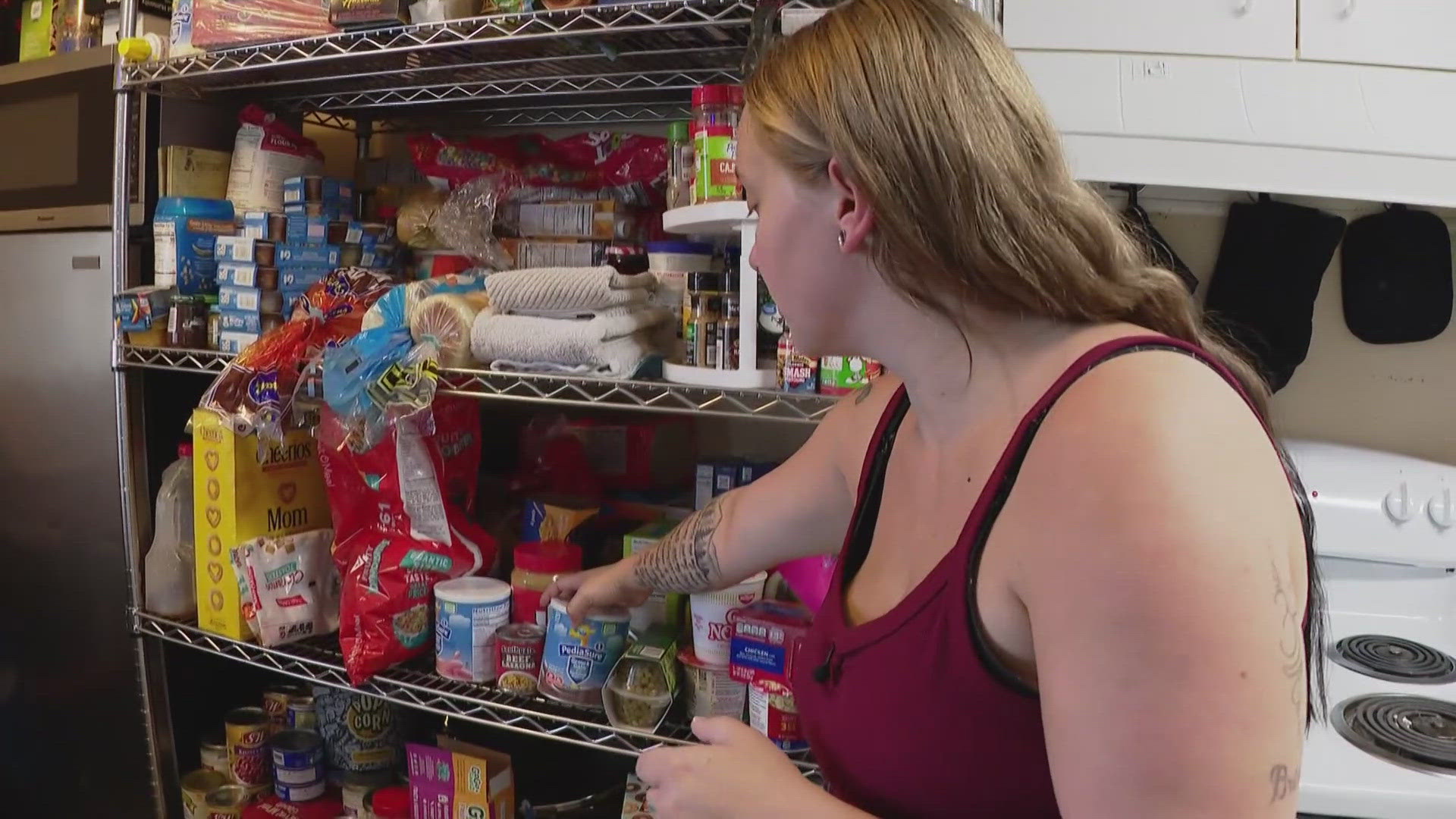PORT ANGELES, Wash. — Preparing for lunchtime is the calm before the storm for Haley Hogerson.
She looks through her Port Angeles apartment's pantry as her 1-year-old son, Alaric, lies asleep on the couch, blissfully unaware of the struggles his mom goes through.
"There was a month where the grocery bill was like $900," she says. "Living is hard these days."
"Calm" is what Hogerson is trying to keep.
With childcare unaffordable, the single mother of three must stay home to care for her kids.
"I think the hardest part is not wanting the kids to think they don't have anything," Hogerson said.
In Clallam County, where Hogerson lives, the poverty rate is 33% above the state average. Families are struggling, but some believe a guaranteed monthly income could be part of the solution.
Hogerson's is one of 25 low-income families selected by Olympic Community Action Programs (OlyCAP) to receive $500 on a debit card every month for the next 12 months -- no strings attached.
"The first thing I plan on doing is paying the internet and utility bills," Hogerson said.
With income inequality growing worldwide, this sort of "guaranteed income" is being studied across the globe.
It's considered more of a floor to stand on than a safety net, and it appears to be working.
A study in Stockton, California, examined 125 people who were given $500 a month for 24 months.
The number of those able to pay an unexpected expense doubled from 25% to 52%. Participants able to make debt payments increased from 52% to 62%, and those who could find full-time employment rose from 28% to 40%. Other studies have found similar results.
In King County, the level of employment rose from 37% to 66%.
Researchers have found a guaranteed income allows people to pay for childcare so they can look for work or care for loved ones.
It has also been proven to improve the mental health of both parents and children.
It's the second round of such funding for OlyCAP.
In 2022, the agency provided 20 families with $500 for 18 months.
In a written statement, the organization's executive director, Holly Morgan, told KING 5, "Many program participants were able to obtain secure housing, find better economic opportunities (one family even started their own business), children enjoyed enrollment in extracurricular activities that would have otherwise been unaffordable."
Critics say the free money is ripe for abuse and only encourages people not to work, but Hogerson disagrees.
"If I'm gonna use this, I'm gonna use this to get out of the situation I'm in, versus spending it willy-nilly on random stuff that isn't going to mean much in the end," she says. "I want to use this to dig out of the hole that we're in."
Some countries have considered giving basic payments to everyone.
OlyCAP hopes that by targeting low-income people specifically, the concept will be better accepted.
For Hogerson, the money affords her the luxury of "calm"—keeping a financial storm from her precious baby boy.
"It makes it a lot easier for me to breathe and not have to worry about where to get the money to do things," she says. "I can just relax about it a little bit."
If guaranteed income programs like OlyCAP were to catch on, there is the question of funding. OlyCAP's program is funded by a generous donor.
That model would have to be duplicated or taxes would likely have to be raised.

